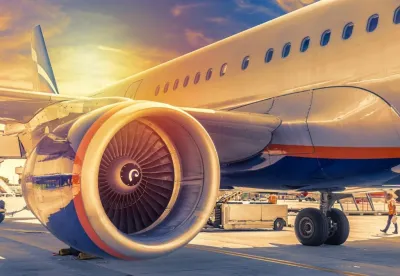
It is obvious that air transport has become a favorite target of ecological activists. They have succeeded in making this field, which, let us remember, generates less than 3% of CO2 emissions, the main cause of global warming. Of course, there is no question of discussing the impact of flights on the climate, but it is high time to take a strong initiative against the opponents of an industry that is essential to the world economy.
The major contribution of air transport to the prosperity and well-being of the planet will not save it from unfair accusations or protect it from ecological taxation. Little by little, we can feel it coming, unless the actors themselves take the initiative of a compulsory contribution.
If ecological taxation were to be decided by any political authority, be it global, European or even just national, it seems obvious that the traceability of its use would be impossible to follow.
The amounts collected would inevitably end up in a global budget, which would be used at the whim of politicians, without being able to be controlled.
The only interest of such a contribution is to finance the ecological transition of air transport and not to contribute to the coffers of certain structurally loss-making land carriers.
Why Not Leave It to IATA?
It would therefore be wise for the air transport authorities to take charge of these matters. Why not entrust the matter, for example, to IATA, which is still the best representative of the airlines?
Let's imagine a contribution of 5 euros or dollars per passenger, which could also be modulated between short and long-haul flights.
The air transport industry issues just over 4 billion flight coupons every year. Although not all of these are channeled through the BSP (Billing and Settlement Plan), however it still accounts for 60% of the total.
Essentially, BSP is a quick and unstoppable way to raise money, and we're talking about $10 billion to $12 billion a year. IATA is perfectly capable of collecting this windfall and storing it securely.
What about Low-cost Carriers?
The use of the funds would then have to be determined, and should be linked solely to improving the environmental performance of the industry. This could be done by vote at the IATA Assembly or by decision of the Board of Governors, based on proposals submitted by operators.
Thus, the money collected from customers would be channeled directly into improving air transport. This system would also have the advantage of avoiding unfair competition between players, as all would be subject to the same rules.
I will be told that low-cost carriers do not use the PSB and that, consequently, they could avoid such a contribution. But the issue is very important.
Low-cost airlines carry around 700 to 800 million passengers a year. So, it would not be fair for them not to participate in this fund-raising, which would further accentuate the differential they have with the traditional carriers.
A fair way of collecting their share will then have to be found. This could perhaps be done through airport charges, which are sufficiently complex to accommodate such a levy. All carriers, including low-cost carriers, are obliged to use airports.
The major difficulty is that, very often, airlines take the initiative too late.
The best example was the management of "overbooking". By not deciding themselves on the compensation that deplaned passengers should receive, they allowed the authorities to take coercive measures, and they had a very heavy hand. The same phenomenon was repeated with the management of delayed or cancelled flights.
Policy decisions are taken solely based on the interests of consumers, without taking into account the difficulties of operators.
Ecology has become the number one issue for at least the next 10 years. Will air transport leave it to others to receive the inevitable taxation without being able to control its use for its own benefit and not that of its competitors?










